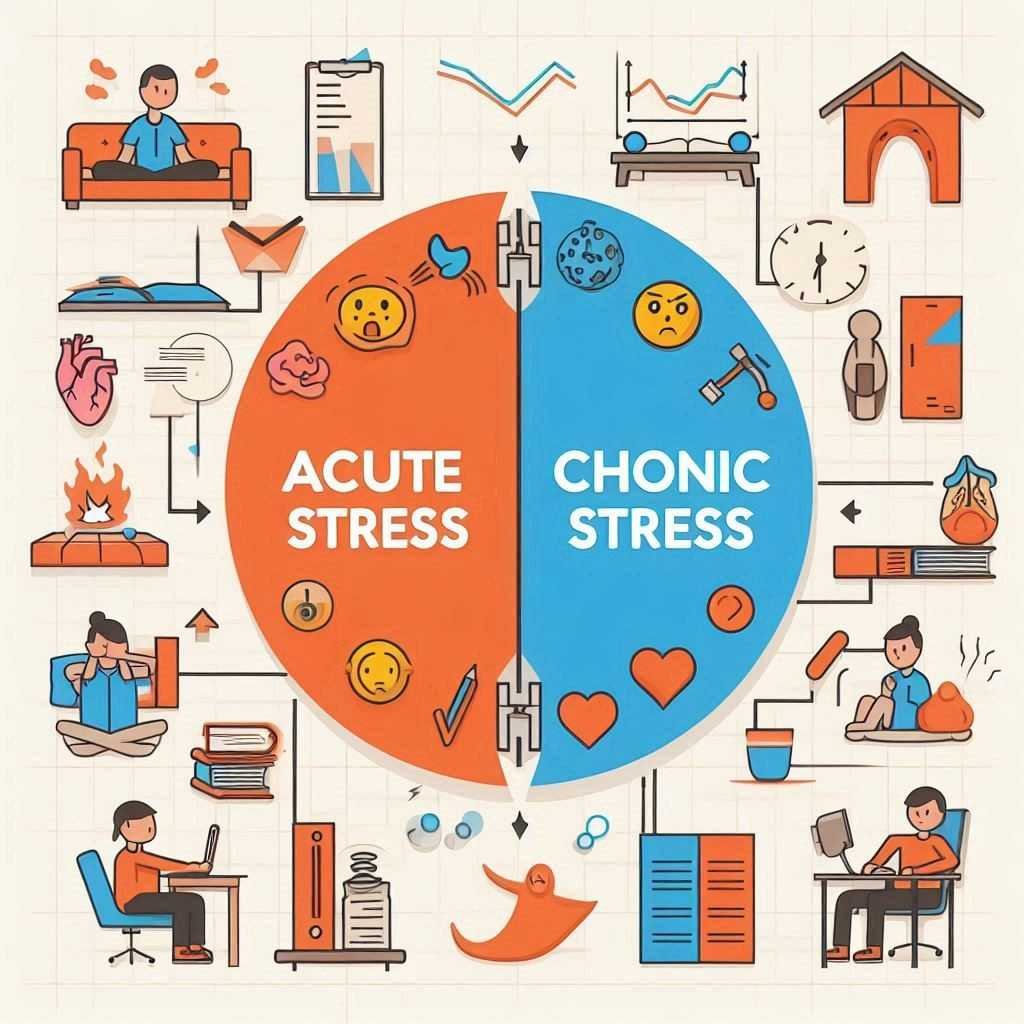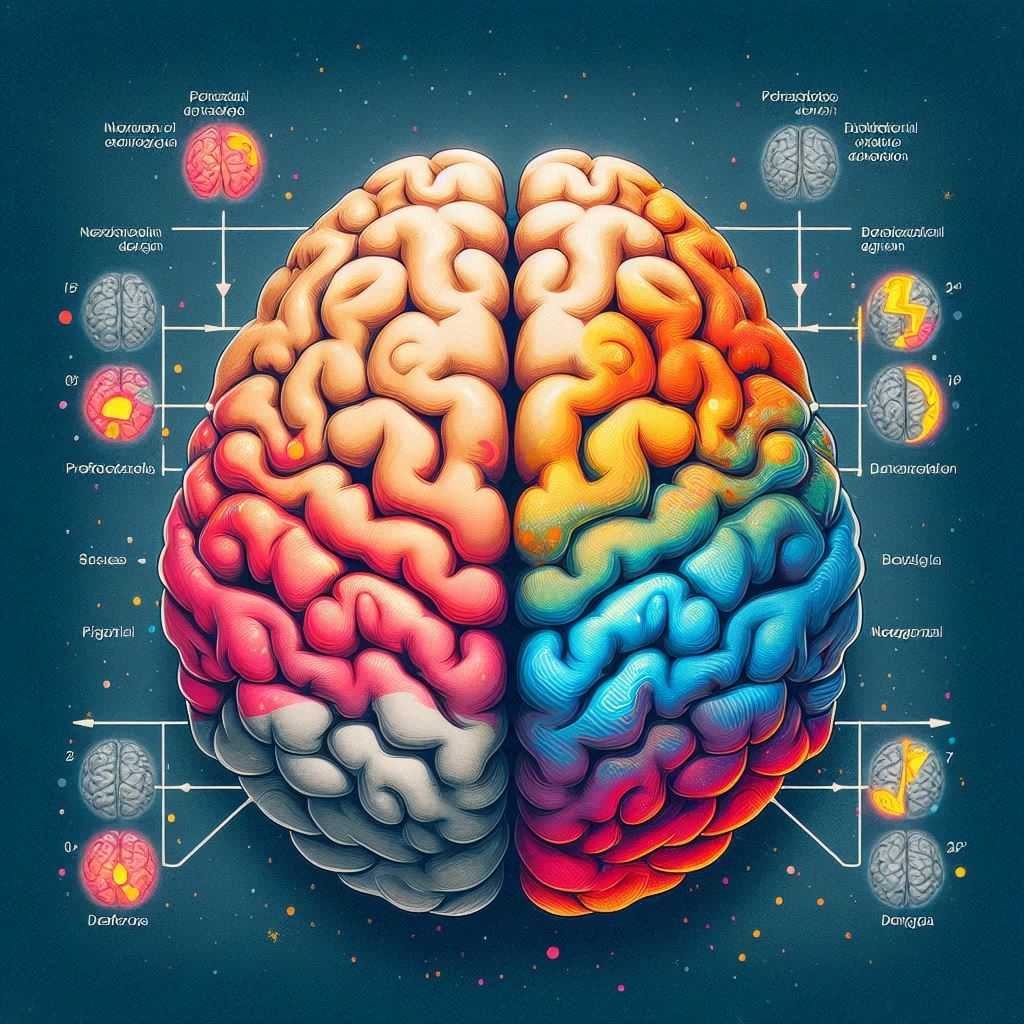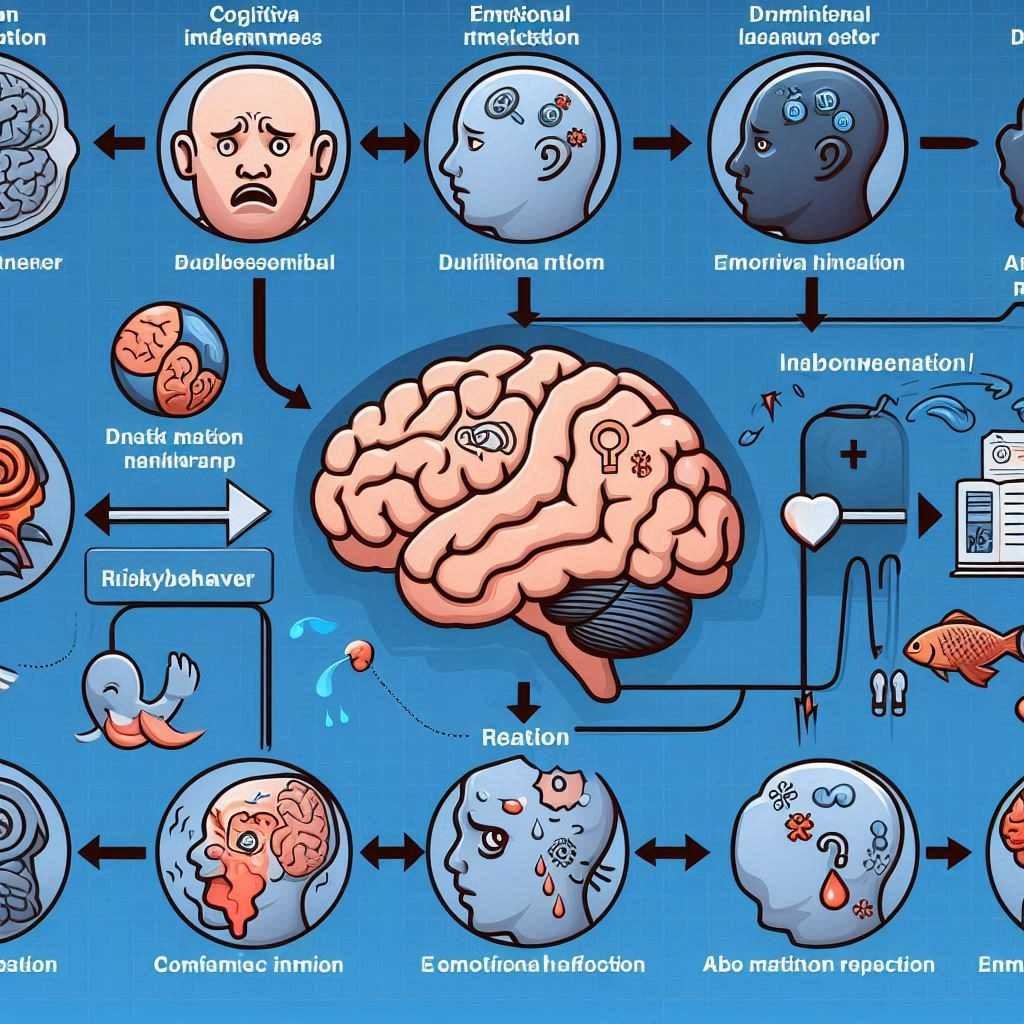Yes, stress can sometimes lead people to engage in illegal actions, and it’s important to know that not everyone under stress will act in such a way. Stress can damage decisions, reduce motivation control, and create feelings of desperation, which might lead someone to make poor decisions.
Factors like individual circumstances, coping mechanisms, and support systems also play an important role in how someone responds to stress. It’s a complex relationship, and while stress can be a factor, it doesn’t excuse or justify illegal behavior.
Did you know that 76% of Americans cite money and work as their primary sources of stress? 😱 Even according to recent studies a strong relation between high stress levels and increased criminal behavior. This comprehensive guide will explore the relationship between stress and illegal actions, with discussing the hidden mechanisms that can change everyday pressure into criminal conduct.
Table of Contents
1. Introduction To The Relation Between Stress and Crime

Imagine Sarah, a respected accountant with a new record. Suddenly, she finds herself stealing funds from her company. What could bring such a powerful change? The answer might surprise you: chronic stress.
Let’s break down the elements of stress-related illegal actions:
The Critical Link: How long stress impacts decision-making, impulse control, and ultimately, behavior
Stress: The body and mind’s response to demanding situations
Illegal Actions: Behaviors that violate established laws or regulations
Dr. Michael Thompson, a forensic psychologist with over 20 years of experience, explains: “Chronic stress can significantly impair judgment, increase risk-taking behavior, and erode an individual’s moral compass, potentially leading to stress-related crimes.”
2. Types of Stress and Their Impact on Behavior
There are different types of stress that are crucial in getting their potential impacts:
Acute vs. Chronic Stress Analysis
graph TD
A[Types of Stress] --> B[Acute Stress]
A --> C[Chronic Stress]
B --> D[Short-term duration]
B --> E[Often manageable]
B --> F[Can be beneficial in small doses]
C --> G[Long-term, persistent]
C --> H[Potentially harmful to health]
C --> I[May lead to illegal behavior]Effects of Stress on Behavior

| Physical Effects | Psychological Effects | Behavioral Effects |
|---|---|---|
| Headaches | Anxiety | Irritability |
| High blood pressure | Depression | Social withdrawal |
| Weakened immune system | Mood swings | Substance abuse |
| Digestive issues | Cognitive impairment | Aggressive outbursts |
🚨 Alarming Statistic: According to the American Psychological Association, 33% of Americans report feeling extreme stress, with 48% believing their stress has increased over the past five years.
3. Stress and Decision-Making Ways To Illegal Actions
When stress covers our decisions, the results can be bad. Here’s how stress impacts our cognitive functions and can lead to illegal behavior:

Cognitive Impairment:
- Reduced ability to process information
- Difficulty in long-term planning
- Impaired memory function
- Increased Risk-Taking:
- Heightened sensation-seeking behavior
- Underestimation of negative consequences
- Overvaluation of potential rewards
- Emotional Reactivity:
- Impulsive decision-making
- Amplified emotional responses
- Decreased emotional regulation
Dr. Lisa Chen, a neuropsychologist, notes: “Under chronic stress, the prefrontal cortex – responsible for rational decision-making – can become suppressed, while the amygdala – our emotional center – becomes hyperactive. This imbalance can significantly increase the risk of engaging in illegal actions.”
4. Psychological Theories About Criminal Behavior
To understand properly how stress leads to crime, let’s discuss psychological theories:

Fight or Flight Response
- Triggers: Perceived threats or high-pressure situations
- Physical reactions: Increased heart rate, rapid breathing
- Behavioral outcomes: Aggression or avoidance, potentially leading to illegal actions
Emotional Dysregulation
- Definition: Inability to manage emotional responses effectively
- Consequences: Mood swings, outbursts, impulsive actions
- Link to illegal behavior: Can lead to violent crimes or substance abuse
Cognitive Behavioral Models
- Application: Used in therapy to address stress-induced criminal behavior
- The core concept: Thoughts influence emotions and behaviors
- Stress impact: Alters thought patterns, leading to negative behaviors
Learn more about stress and mental health from the National Institute of Mental Health
5. Stress as a Motivation for Criminal Behavior: Real-World Examples
Can stress really lead to crime? Research suggests a strong correlation. Let’s examine some real-world examples of stress-related illegal actions:

Domestic Violence:
- Stress often escalates family conflicts
- Financial stress is a common trigger
- Isolation during stressful periods (e.g., pandemic lockdowns) increases risk
- Theft and Fraud:
- Financial stress can drive individuals to desperate measures
- Job loss or debt often precede such crimes
- Example: Increase in shoplifting during economic recessions
- White-Collar Crime:
Case study: The Enron scandal, where executives committed fraud under intense pressure to maintain company growth
- High-pressure work environments may contribute to ethical lapses
- Fear of job loss or failure can motivate fraudulent activities
- Case study: The Enron scandal, where executives committed fraud under intense pressure to maintain company growth
6. The Legal System’s Opinion on Stress-Induced Crimes
How does the law handle stress-related illegal actions? It’s a complex issues

Stress can sometimes be used as a mitigating factor in criminal cases
Some jurisdictions recognize “heat of passion” defenses for crimes committed under extreme stress
Courts increasingly consider the impact of trauma and chronic stress on behavior
Notable case: In 2019, a UK court reduced a sentence for fraud after considering the defendant’s extreme work-related stress and mental health issues.
7. Stress and Illegal Actions Related To Work
The workplace can be a breeding ground for stress-induced misconduct:

- Ethics violations due to pressure to meet targets
- Example: Wells Fargo account fraud scandal (2016)
- Financial fraud stemming from job insecurity
- Case study: Increase in employee theft during company downsizing
- Professional misconduct as a result of burnout
Healthcare sector: Stressed medical professionals making critical errors
Explore workplace stress statistics from the American Institute of Stress
8. Social Stress and Crime
Societal factors play a huge role in stress-related crime:
- Deprivation and economic stress correlate with higher crime rates
- Statistics show a 5% increase in property crimes for every 1% rise in unemployment
- Social inequality can lead to increased stress and criminal behavior
- Areas with high income inequality sometimes experience higher crime rates
- Marginalized communities often face compounded stressors, potentially increasing crime risk
- Racial discrimination, lack of resources, and limited opportunities contribute to chronic stress
9. Strategies to Stop Stress-Induced Illegal Actions
How can we prevent stress from leading to illegal actions? Here are some evidence-based strategies:

Individual Stress Management Techniques:
- Mindfulness meditation: Reduces stress and improves decision-making
- Regular exercise: Boosts mood and reduces anxiety
- Time management skills: Decreases work-related stress
- Professional Help: Therapy and Counseling:
- Cognitive Behavioral Therapy (CBT): Addresses thought patterns leading to stress
- Stress management programs: Teach coping mechanisms
- Support groups: Provide community and shared experiences
- Organizational and Social Measures:
Policy changes: Address root causes like poverty and inequality
Workplace stress reduction programs: Decrease burnout and improve productivity
Community support systems: Offer resources for stress management
Check out stress management techniques from the Mayo Clinic
10. Conclusion: Taking Action Against Stress-Related Crime
Discussing the link between stress and illegal actions is crucial for creating a safer, healthier society. By addressing stress at individual, organizational, and societal levels, we can work towards reducing stress-induced crime and improving overall well-being.
Remember, if you’re experiencing chronic stress, don’t hesitate to seek help. Your mental health matters and managing stress effectively can improve your life in countless ways! 🌟
Call to Action: Share this article to raise awareness about the hidden link between stress and illegal actions. If you’re struggling with stress, reach out to a mental health professional or contact your local stress management resources.
11. FAQs: Your Questions About Stress and Crime Answered

Q: Can stress really lead to crime?
A: While stress alone doesn’t cause crime, it can significantly impair judgment, increase risk-taking behavior, and erode impulse control, potentially leading to illegal actions.
Q: What are some common stress-related crimes?
A: Frequent stress-related crimes include domestic violence, theft, fraud, and substance abuse-related offenses.
Q: How does frustration contribute to crime?
A: Frustration, often a result of chronic stress, can lead to aggression and impulsive behavior, potentially resulting in criminal acts like vandalism or assault.
Q: Can stress cause mental illness?
A: Chronic stress can contribute to the development or exacerbation of mental health issues like anxiety, depression, and even more severe conditions if left untreated.
Q: What are the long-term effects of extreme stress?
A: Extreme, prolonged stress can lead to physical health problems (like cardiovascular disease), mental health issues, cognitive impairment, and in some cases, engagement in risky or illegal behaviors.
Q: How can I manage stress to prevent negative behaviors?
A: Effective stress management techniques include regular exercise, mindfulness meditation, time management, seeking social support, and professional help when needed.
Q: Are there legal consequences for crimes committed under extreme stress?
A: While stress may be considered a mitigating factor in some cases, it typically does not excuse criminal behavior. Legal consequences can vary depending on the specific circumstances and jurisdiction.
Share Your Experience
Have you ever been disturbed by stress to the point of thinking actions you normally wouldn’t?
Share your story in the comments below. Your experience could help others understand they’re not alone and encourage seeking help.
Take Our Quick Poll
How do you think society should address the link between stress and illegal actions?
- [ ] Improve mental health resources
- [ ] Implement stress management in schools and workplaces
- [ ] Address systemic issues like poverty and inequality
- [ ] Increase awareness about the stress-crime link
- [ ] All of the above
Your voice matters! Select your answer and see how others have responded.